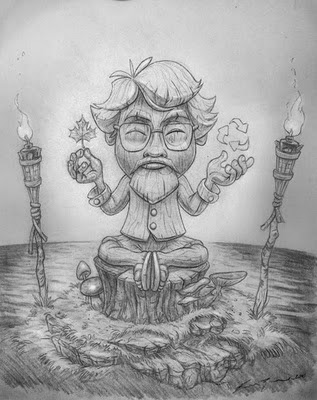David Suzuki looks back with a hint of regret
‘We’re still fighting the same battles,' environmentalist says on eve of new show on CBC Radio

Published on Tuesday, Jun. 29, 2010 3:36PM EDT
Over the phone, David Suzuki is angry. He mentions the Gulf of Mexico oil spill with vitriol. He’s fired up. His criticism of the man-made disaster is succinct and on point. But when the conversation turns to his own activism and the legacy of his broadcasting work, a note of regret accompanies his answer.
It’s a glimpse into Suzuki’s thoughts about his own career and his new CBC Radio series, The Bottom Line, which makes its debut on Sunday.
After four decades on the air, he can easily point to case after case in which CBC-TV’s The Nature of Things has made a difference, bringing attention directly to pockets of the environment needing help and producing results.
“Certainly I know for a fact that The Nature of Things has played an absolutely critical role in the protection of what is now the Gwaii Haanas National Park Reserve. The Nature of Things program we did on Windy Bay was absolutely critical for galvanizing the support that made that [park reserve] happen,” he says.
“ I feel all the effort that I’ve been involved in has really failed. We’re going backward.”
He sees it as a community effort, with The Nature of Things playing a role alongside efforts by grassroots groups and institutions.
Yet he feels differently about his legacy.
When he started his David Suzuki Foundation in 1990, he says, the feeling among environmentalists was that “the 1990s had to be the turnaround decade. When I started the foundation, I said, ‘We’ve 10 years. Every penny we raise we’re going to spend because we’ve only got 10 years [to make a difference].’ Well, it’s 20 years later. We’re still fighting the same battles.”
So Suzuki is changing tack a little with his new, summer radio series. The Bottom Line is as much about people’s mindset toward environmental issues as about the issues themselves. “It’s about what we come to value and believe,” he explains. For example, two programs will be devoted to the oil sands – not simply on the environment, but the social and economic implications for the region and Canada.
“We have a situation today where the Prime Minister has said for four years, ‘We can’t do anything about climate change; it’ll destroy the economy.’ So the economy comes before the very atmosphere that we depend on for our weather and climate and our breathing.
“I would suggest that there’s a very radically different bottom line, which is, if you don’t have air for two or three minutes, you’re dead. It’s the same for water. If you don’t have water for a few days, if you don’t have food for a few weeks … Surely to God, it ought to be our highest priority to protect these. But we pour toxic chemicals into them, because that’s the price of doing business.”
Instead of a rehash of environmental issues, Suzuki describes his new series as determining what’s more important to us.
“I have been told over and over again by business people and politicians, ‘You environmentalists should understand that we can’t afford to do the things you want us to do if we don’t have a strong, growing economy, because the economy is the bottom line.’ ” Hence the name of the series.
“We publish every day how much the Dow Jones average has increased or decreased. Every day, we publish the value of the Canadian dollar to four decimal points. And yet when we hear a report that [a significant per cent] of mammals will be gone by the middle of this century, … these are usually on the back pages. There’s no big deal made about it.”
What does this say, then, about science reporting? Should environmental news go into a heightened, crisis mode?
Environmental awareness has been subsumed by other news over the past two years, but it’s no less important to the public, Suzuki says.
“The environment by 2008 had become the highest priority. Climate change was up at the top. And then we went into a very severe economic meltdown. And, of course, all the attention, especially the media, focused on the economy. But if you scratch people, underneath they still want something done to protect the environment.”
He adds: “I went into television in 1962 because I felt that science was the most important factor shaping our lives. And you only have to talk to a teenager today and get them to try to imagine living without cellphones, without iPods, without text messaging or any of this stuff, and they can’t imagine what life would be like.
“So these things have impacted our lives enormously and we need science to inform us as best it can about what the implication might be. And quite frankly, as far as I’m concerned, I feel all the effort that I’ve been involved in has really failed. We’re going backward.”
There’s the regret again. So what’s pushing Suzuki? What stops him from becoming dispirited?
“We’ve got to be ‘lifers.’ My wife is always saying, ‘We need sustainable activism.’ You can’t just be a one-issue person who burns out in the end. We’ve got to be in this for a lifetime. We’re lifers. And what motivates me, I can tell you: It’s a very, very frightening time, because all the indicators are very serious.”
theglobeandmail.com |




